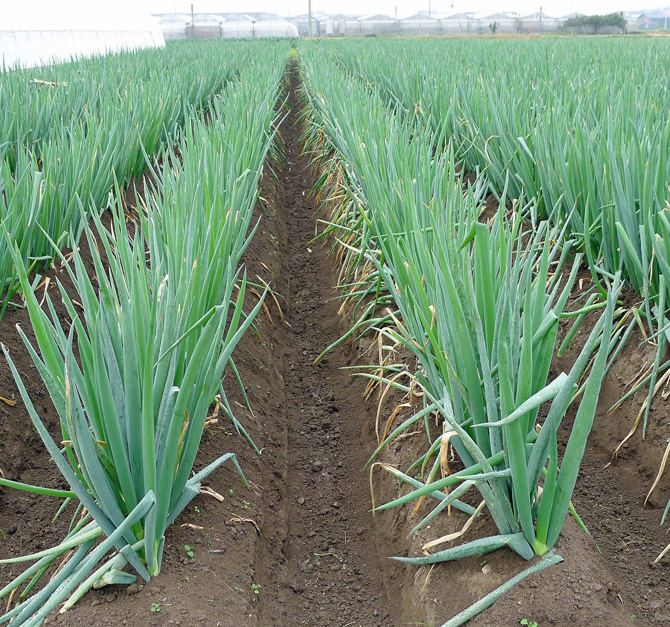We Greeks are not, of course, the only ones to eat leafy greens, especially this time to the year. Asians love greens, and some of the plants they cultivate are similar to the ones we eat here, on the other side of the world.

In my recent trip to Japan I fell in love with komatsuna, that looks like a cross between spinach and bok choy, but it is a different, wonderfully tender and succulent green! Suka-San, the hard-working organic producer in the region of Kamikawa, where I spent some days, was kind enough to give me seeds that I planted in my garden and I can’t wait to harvest and cook them.

I was asked to do a cooking demonstration, during and organic farming fair at Kamikawa, so used this wonderful green, together with negi, often called ‘Japanese leek.’ To me negi looked more like the large green onions we grow in the garden; but in fact it is another plant of the extended allium family; a large green onion with firm pointy leaves. I braised komatsuna and negi in olive oil following the traditional recipe from Crete. Instead of lemons, which are not available in Japand, I used yuzu, the very fragrant citrus of this country. Fennel, dill and such aromatic herbs are not available in Japan, so I finely chopped someyuzu zest, which gave the simple dish a new flavor. Instead of potatoes, I toasted pieces of bread, wrapped in olive oil, an idea I copied from Semsa Denizel’s Kantin Istanbul restaurant. Semsa is a passionate baker, and her miche loaves are comparable to the celebrated Parisian Poilane bread! In her seasonal menu at Kantin she always incorporates fresh or toasted bread slices in the vegetable and fish dishes; taking her lead, I decided to add olive-oil-rubbed toasted bread cubes to the soupy braised komatsuna and negi. That, of course was quite exotic in Japan, a country whose traditional cuisine does not include bread. Furthermore, I decided to thicken the greens’ sauce with avgolemono—egg and lemon sauce, or more precisely here ‘egg and yuzu’: Follow the basic description on the meatball recipe, using the broth from the braised greens instead of meat or chicken stock.

We served it in bowls, as it is the tradition, and the participants devoured it! Through the translator, some ladies talked to me about the wonderful properties of olive oil, that a well-known health-food TV personality talks about in his shows. ‘He eats one tablespoon every evening and it keeps him young,’ they told me. When I suggested that they too could cook their everyday food with olive oil, they looked at me with horror: ‘It is terribly expensive,’ they said…